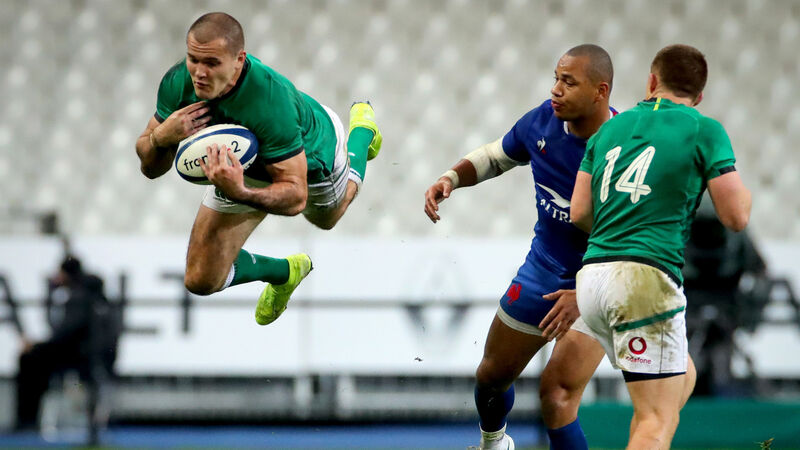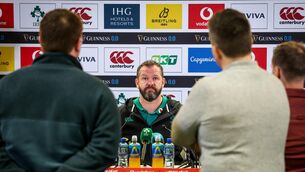Donal Lenihan: Is Irish rugby's talent pool deep enough to compete against the best?

Ireland’s Jacob Stockdale takes flight after been tackled by France’s Gael Fickou in the Six Nations match at the Stade de France last weekend. Donal Lenihan believes the Ulster star is a gifted athlete but believes his concentration always appears suspect.










